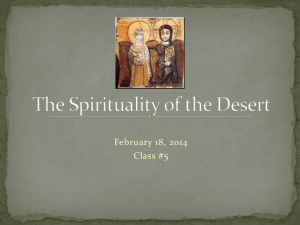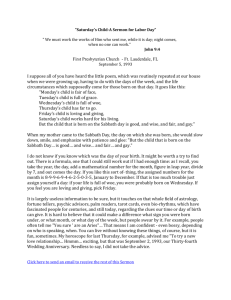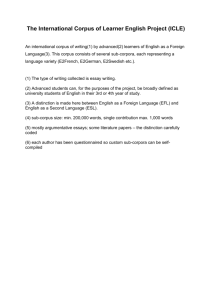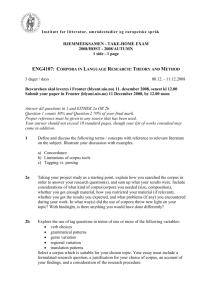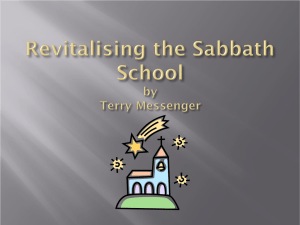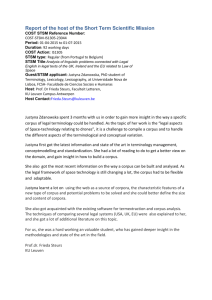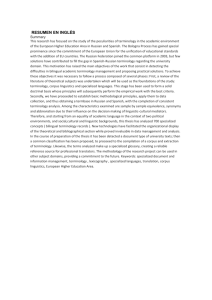ABSTRACT EXPLORING THE HARBOR OF REST: THE
advertisement
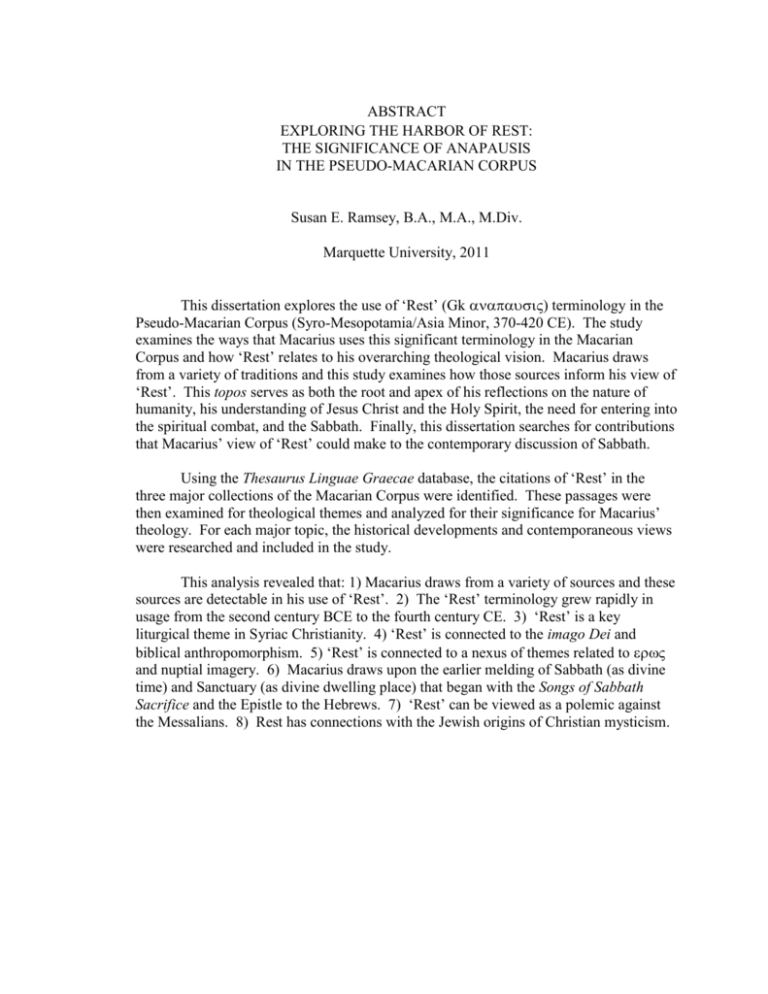
ABSTRACT EXPLORING THE HARBOR OF REST: THE SIGNIFICANCE OF ANAPAUSIS IN THE PSEUDO-MACARIAN CORPUS Susan E. Ramsey, B.A., M.A., M.Div. Marquette University, 2011 This dissertation explores the use of ‘Rest’ (Gk terminology in the Pseudo-Macarian Corpus (Syro-Mesopotamia/Asia Minor, 370-420 CE). The study examines the ways that Macarius uses this significant terminology in the Macarian Corpus and how ‘Rest’ relates to his overarching theological vision. Macarius draws from a variety of traditions and this study examines how those sources inform his view of ‘Rest’. This topos serves as both the root and apex of his reflections on the nature of humanity, his understanding of Jesus Christ and the Holy Spirit, the need for entering into the spiritual combat, and the Sabbath. Finally, this dissertation searches for contributions that Macarius’ view of ‘Rest’ could make to the contemporary discussion of Sabbath. Using the Thesaurus Linguae Graecae database, the citations of ‘Rest’ in the three major collections of the Macarian Corpus were identified. These passages were then examined for theological themes and analyzed for their significance for Macarius’ theology. For each major topic, the historical developments and contemporaneous views were researched and included in the study. This analysis revealed that: 1) Macarius draws from a variety of sources and these sources are detectable in his use of ‘Rest’. 2) The ‘Rest’ terminology grew rapidly in usage from the second century BCE to the fourth century CE. 3) ‘Rest’ is a key liturgical theme in Syriac Christianity. 4) ‘Rest’ is connected to the imago Dei and biblical anthropomorphism. 5) ‘Rest’ is connected to a nexus of themes related to and nuptial imagery. 6) Macarius draws upon the earlier melding of Sabbath (as divine time) and Sanctuary (as divine dwelling place) that began with the Songs of Sabbath Sacrifice and the Epistle to the Hebrews. 7) ‘Rest’ can be viewed as a polemic against the Messalians. 8) Rest has connections with the Jewish origins of Christian mysticism.
